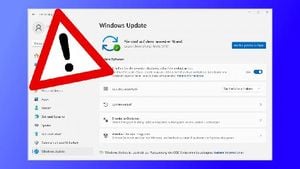As the countdown to 2027 continues, homeowners with solar panels in the Netherlands are clinging to hope that they will still be able to net meter, or "salderen," despite the impending abolition of this favorable regulation. Legal expert Roelof de Nekker argues that energy companies cannot simply remove this essential benefit from their contracts. However, energy experts express skepticism about the future of net metering, especially after the Dutch House of Representatives has already approved its elimination.
De Nekker, who has been actively involved in legal battles concerning energy contracts, points to a recent court ruling in Amsterdam that found energy supplier Vattenfall had improperly made interim changes to variable energy rates. This case, initiated by De Nekker in 2022 after Vattenfall raised rates for his mother-in-law, may have implications for the three million households with solar panels across the country.
According to De Nekker, households currently holding energy contracts that guarantee net metering should maintain this right, even after the law changes in 2027. He stated on the television program Kassa, "The net metering agreements are included in the general terms and conditions used by energy suppliers and are often also mentioned in the energy contract itself. These agreements must be honored by energy suppliers." This sentiment resonates with Lorenzo Squintani, a professor of energy law at the University of Groningen, who supports De Nekker's views.
However, not everyone shares this optimism. Ben Woldring, director of the comparison site Gaslicht.com, cautions that Vattenfall has appealed the court's decision to the Supreme Court, leaving the situation uncertain. Woldring also emphasizes that solar panel owners primarily benefit from tax advantages through net metering, which the government can modify at any time. He warns that if De Nekker's interpretation is upheld, energy companies might increase the costs associated with returning electricity to the grid.
As the debate unfolds, energy experts like Joris Kerkhof from Independer are considering the broader implications of potential changes to net metering. Kerkhof questions whether energy companies would raise return costs for solar panel owners or distribute those costs among all customers, impacting the affordability of solar energy.
In a related development, lawyer Oscar van Oorschot is contemplating legal action against the government over the planned abolition of net metering in 2027. He has already garnered interest from over 140,000 households with solar panels who are eager to join a mass claim. Van Oorschot argues that the government has acted carelessly by promoting solar panel installations while planning to revoke the net metering benefits, which could significantly delay the return on investment for many homeowners.
Meanwhile, Holland Solar, an association advocating for solar energy, is urging the Dutch House of Representatives to implement a new incentive called the flex bonus on May 13, 2025. This initiative aims to ensure that households can continue to participate in the energy transition despite the loss of net metering. Wijnand van Hooff, the director of Holland Solar, emphasizes the importance of empowering citizens in the energy transition and argues that the flex bonus is essential for encouraging households to utilize their solar energy effectively.
Van Hooff highlights that while net metering has spurred investment in solar panels, it is time for households to shift towards self-consumption of solar energy. He advocates for solutions such as home batteries, smart charging stations, and heat pumps to facilitate this transition. By incorporating the flex bonus into existing funding programs, Van Hooff believes that not only homeowners but also renters and low-income individuals can access these flexibility solutions.
However, concerns remain that the government is prioritizing wind energy over solar initiatives. Van Hooff warns that neglecting solar energy policies could result in missed opportunities for citizen participation in the energy transition, stating, "Solar energy is available on every roof, in every street. It is the way citizens can contribute to a sustainable future."
The uncertainty surrounding the future of net metering and the potential for new regulations has left many consumers feeling anxious. Holland Solar argues that the recent discussions regarding the possible retention of net metering rights after 2027 only underscore the confusion surrounding payback times and tariffs. Van Hooff insists that clear decisions must be made to restore consumer confidence in solar energy investments.
As the deadline approaches, the energy landscape in the Netherlands remains fraught with uncertainty. The interplay between legal agreements, government regulations, and market conditions will ultimately determine the fate of net metering for solar panel owners. Consumers are encouraged to scrutinize their energy contracts closely, particularly the fine print that may dictate their rights to net meter beyond 2027.
In summary, while some legal experts and advocates are hopeful that existing contracts may allow for continued net metering, the reality is complex. The Dutch government’s decision to abolish net metering raises significant questions about the future of solar energy in the country. As the situation develops, both consumers and energy companies will need to navigate a changing regulatory environment that could reshape the landscape of renewable energy in the Netherlands.





